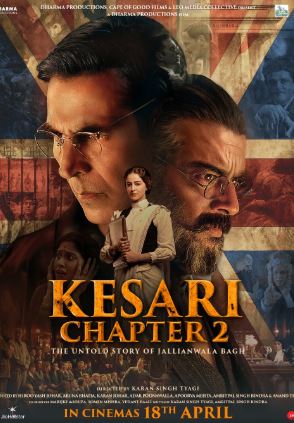Kesari Chapter 2 could be defined as an impactful cinematic action that addresses the significant issue of history and describes it in terms of bravery, righteousness, and righteousness. The narrative of the film combines the elements of high-tension of courtroom drama and close inner self-discovery, which helps to understand what inner demons the main character C. Sankaran Nair had to face. This juxtaposition forms an inspiring, yet sobering, tone that highlights the great cost of telling the truth to authority and the necessity of rising against systemic oppression.
There is an evoking cinematography in the movie, with very dull coloring, which gives the mood of the sadness of the colonial India which adds a greater dimension in the emotional character of the story-line. The design of the production places the audience in the whirlpool of life of that time, and special effects, although modest but active ones, add emotional points without drowning the human drama. Performance is good all round, and the lead gives a sensitive characterization of the moral strength and inner struggle of Sankaran Nair with extensive support by developed subsidiary characters that enhance emotional impact.
The score of the film indelicately magnifies the main moments, imbuing what already seems desperate and grave with a kind of urgency, whereas editing makes it sound moved, though quick and contemplative. The viewers are magnetized by sharp speak and the assured direction that makes one ponder about the significance of truth and integrity. The depiction of moral courage against oppression, however, was most interesting to me (because of the simple honesty that I felt upon reading it) and left me quite inspired and pensive. Although with a little heavy historical exposition, the Kesari Chapter 2 is an excellent lesson in history that is expertly and confidently presented with a touch of art, and is what every viewer wants to watch to be simultaneously entertained, educated, encouraged and inspired.




